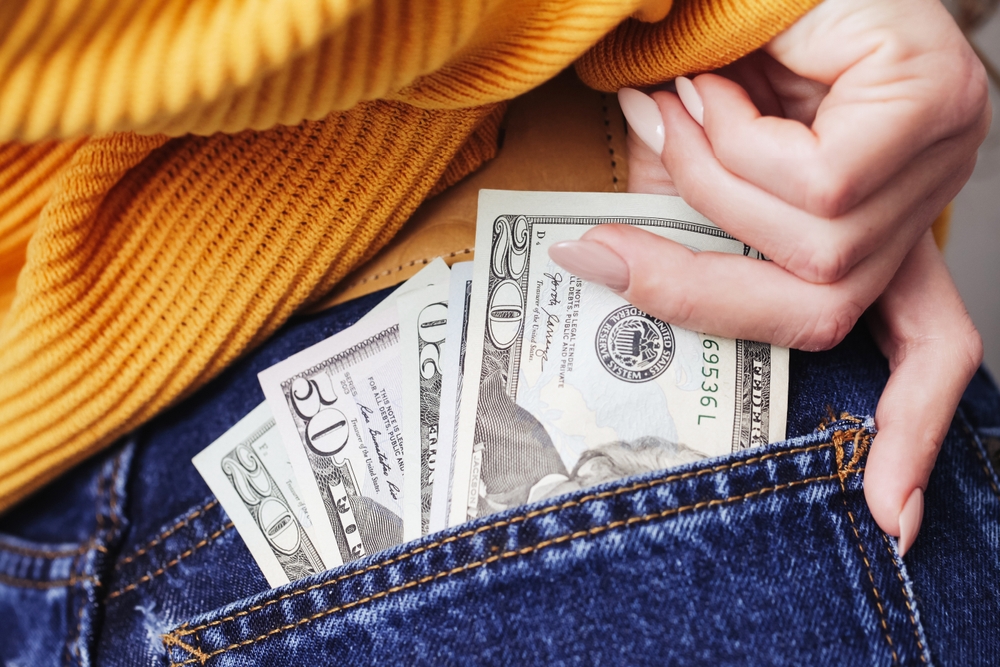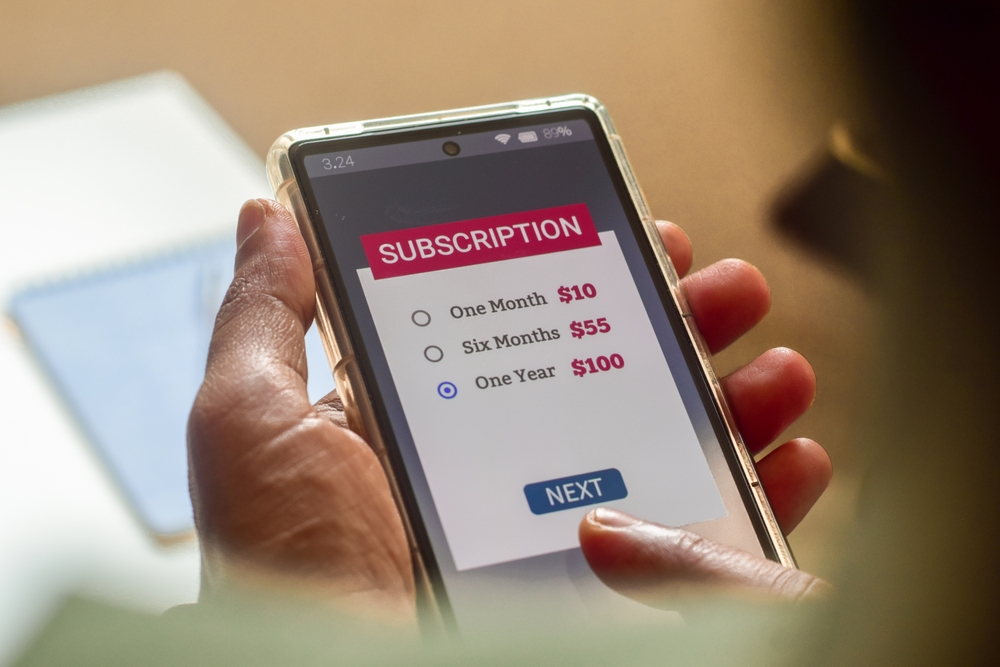We live in a culture that normalizes overspending—one where “treat yourself” is practically a mantra and debt feels like just another part of adult life. Social media only makes it worse, offering a constant highlight reel of luxurious vacations, expensive gadgets, and carefully curated lifestyles. But beneath the surface of those filtered feeds, many people are drowning financially. If you’re wondering why your paycheck disappears faster than you can earn it, it’s time for a reality check.
Living beyond your means isn’t always obvious at first. It often shows up in small habits, quiet anxieties, and financial decisions we justify as “just this once.” Over time, those choices create a pattern—and that pattern leads straight to stress, debt, and regret. Here are 13 signs you’re spending more money than you earn, and more importantly, how to start turning things around.
1. You Dodge Bill Paying

Your unopened bills sit in a pile, quietly accusing you of neglect. You juggle which payments to make each month, hoping you can keep things afloat without too many consequences. It feels like you’re always one late fee away from disaster. The weight of these unpaid responsibilities hangs over you, creating anxiety you try to ignore.
Dodging bills doesn’t make them disappear—it makes them multiply. Late fees, interest charges, and credit damage add up fast. Facing your financial obligations head-on is uncomfortable but necessary. Organizing your payments and budgeting realistically can help you reclaim control.
2. Your Bank Is Empty On Payday

The second your paycheck hits your account, it feels like you’ve just won big. You race to treat yourself—ordering takeout, clearing your online shopping cart, or booking something “fun” you’ve been eyeing. It feels like a celebration, a reward for surviving another two weeks of work. But within days, your balance is already gasping for air.
This cycle of splurging followed by financial panic is a red flag. It keeps you trapped in a loop of excitement, guilt, and scarcity. Your money should bring you peace of mind—not temporary highs followed by deep regret. Building a simple budget can help you break free from this exhausting pattern.
3. You Treat Your Credit Card Limit Like It’s Endless

When your credit limit went up, it felt like validation—like you were finally “doing well.” In reality, it was just an invitation to dig yourself deeper into debt. Each swipe feels harmless, even celebratory, until the statements start piling up. Your limit shouldn’t be your spending goal, but that’s how it’s begun to feel.
Viewing your credit card as free money is a dangerous habit. It leads to revolving debt, interest fees, and financial stress. Credit is a tool for emergencies or convenience—not a substitute for money you don’t have. Reframing how you use credit can help you protect your future self.
4. You Have Never Saved A Dime

Your savings account is either nonexistent or gathering dust with a balance hovering near zero. You tell yourself you’ll start saving “when things calm down” or “when you get a raise.” But somehow, every time you earn more, your expenses creep up to match. You’re not alone—many people live this way, but that doesn’t make it sustainable.
Without savings, you’re vulnerable to life’s inevitable curveballs. Emergencies don’t wait until you’re ready. Even setting aside a small, consistent amount can build momentum and security over time. Your future self will thank you.
5. You Have A Scarcity Mindset

You live with the nagging fear that there’s never enough—money, time, opportunities, or security. This scarcity mindset fuels impulsive spending as you rush to grab what you can, when you can. It’s as if you’re trying to outpace an invisible clock that’s always running out. Ironically, this mindset often leads to overspending rather than saving.
Scarcity thinking creates a vicious cycle of consumption and regret. It convinces you to chase short-term pleasure over long-term stability. The antidote isn’t more stuff—it’s shifting your focus from lack to gratitude. Recognizing what you already have can help curb the urge to overspend.
6. You Live To Shop

Shopping isn’t just a habit for you—it’s a lifestyle. The thrill of new purchases, the rush of scoring a deal, and the satisfaction of adding to your collection are intoxicating. Retail therapy is your go-to for stress relief, celebration, and boredom alike. But each high is followed by the sobering reality of dwindling funds and mounting debt.
This pattern isn’t harmless—it’s emotionally and financially draining. The temporary joy fades quickly, leaving behind regret and financial strain. Shopping can’t fix what’s missing on the inside. Finding healthier outlets for your emotions can help you break this cycle for good.
7. You Justify Every Purchase

Every time you splurge, you’ve got a solid excuse. “I deserve this.” “It was on sale.” “I’ll be more responsible next month.” You’ve become a master at justifying impulsive spending in ways that feel logical in the moment.
But these justifications are costing you more than money—they’re undermining your long-term goals. Rationalizing bad habits keeps you stuck. It’s time to get honest with yourself about needs versus wants. Accountability, not excuses, will help you make lasting changes.
8. You’re Scared To Check Your Bank Balance

Your bank app feels like Pandora’s box—best left unopened. You avoid checking your balance because you’re scared of what you’ll find. Every purchase comes with a side of anxiety, hoping there’s enough to cover it. Ignorance feels safer, but it only delays the inevitable.
Avoiding your finances keeps you in a state of fear and denial. Knowledge, even when uncomfortable, is power. Facing the numbers is the first step toward change. Awareness leads to better choices, and better choices lead to financial peace.
9. You Borrow From Friends And Family Often

You’ve asked for help once or twice, but it’s become a pattern. Friends and family have become your unofficial lenders, patching holes in your budget you can’t seem to fix. You promise it’s temporary, but the requests keep coming. This cycle strains relationships and deepens your financial insecurity.
Relying on others is a sign your spending habits need serious attention. Temporary loans won’t solve ongoing problems. Building a realistic budget and cutting unnecessary expenses can help you regain independence. Financial stability is possible, but it starts with honesty and change.
10. You Rely On “Buy Now, Pay Later” Schemes

“Buy now, pay later” feels like a lifesaver when you want something you can’t really afford. It lets you delay the pain of payment, giving the illusion of affordability. But those small installments add up fast, quietly piling debt on top of debt. Before you know it, you’re juggling multiple payment plans without a clear end in sight.
These schemes are designed to encourage overspending. They stretch your budget thin, making future months harder, not easier. Avoiding them whenever possible protects your financial future. Living within your means will bring far more peace than a payment plan ever will.
11. You Avoid Conversations About Money

You change the subject anytime money comes up, whether it’s with friends, family, or your partner. Financial conversations feel stressful, exposing vulnerabilities you’d rather keep hidden. You tell yourself you’re “just private,” but deep down, it’s avoidance. Ignoring the topic won’t make your financial reality any less real.
Open conversations build accountability and awareness. Avoidance keeps you stuck and isolated. Facing your finances—out loud—helps break the shame cycle. Transparency is a key step toward healthier money habits.
12. Your Closet Is Overflowing

Your wardrobe overflows, yet you still feel like you have “nothing to wear.” This paradox speaks to emotional spending and the constant chase for something new. Shopping has become about filling a void, not filling a need. Yet no outfit can fix what’s missing inside.
This clutter is a symptom of deeper dissatisfaction. It’s easy to confuse accumulation with fulfillment. A mindful approach to shopping—buying less but with more intention—can bring both financial relief and personal clarity. Your future self doesn’t need more stuff; it needs more peace.
13. Your Lifestyle Outpaces Your Income

|
ou’ve built a lifestyle that looks successful from the outside, but it doesn’t match your income. From fancy dinners to spontaneous trips, you’re living like someone with a much larger paycheck. It’s a facade that feels good in the moment but creates long-term stress. Keeping up appearances isn’t worth the toll it takes on your finances—or your mental health.
Authenticity offers more freedom than maintaining an illusion. Living within your means isn’t about deprivation—it’s about sustainability. Scaling back can feel empowering, not limiting. A life aligned with your true income brings peace, security, and space to thrive.
Ask ChatGPT
This article is for informational purposes only and should not be construed as financial advice. Consult a financial professional before making investment or other financial decisions. The author and publisher make no warranties of any kind.








